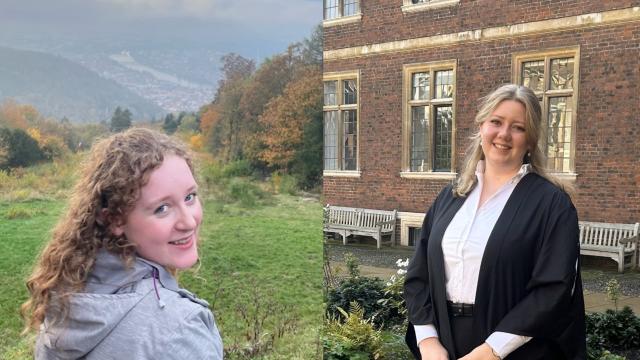
St Catharine’s Fellow Professor Stefan Marciniak (2011) is due to speak about how modern microscopy enables scientists to investigate rare disease at one of the 350 free online events and activities being held for the public during the Cambridge Festival (26 March–4 April 2021). His online lecture entitled ‘The Grander View - How modern microscopy illuminates a rare disease’ is scheduled for 2pm GMT on Saturday 27 March, with the support of Alliance Française Cambridge and the Cambridge Institute for Medical Research.
The rare disease in question is alpha-1-antitrypsin deficiency (AATD), a hereditary disorder that causes a lack of a protective chemical in the body called alpha-1-antitrypsin. This deficiency is associated with a risk of developing life-limiting and life-changing problems in the lungs and liver, including paediatric hepatitis, adult cirrhosis and pulmonary emphysema.
Professor Marciniak explains, “It is not uncommon for people with AATD to develop emphysema in their thirties and forties if they smoke. This gives us an indication of the accelerated damage that can occur without alpha-1-antitrypsin to protect the lungs from the effects of enzymes known as proteases. My laboratory has been studying alpha-1-antitrypsin for over ten years to advance our understanding of lung disease. By a fortunate twist of fate, we have just been awarded a generous grant of £469,880 from the Medical Research Council to continue this important research.”
Professor Marciniak’s team includes three St Catharine’s PhD students and a researcher who was formerly a St Catharine’s postdoctoral associate. While the laboratory itself was closed during the first lockdown in the UK, this allowed clinicians like Professor Marciniak to move into full time NHS duties, including on the wards at Addenbrooke’s Hospital caring for patients with COVID-19. Research has now resumed but with COVID-secure measures that limit laboratory occupancy to 25% of normal. Scientists and students in his team are using creative shift patterns and doing data analysis work at home to comply with these measures.
As a Trustee of Alliance Française Cambridge, Professor Marciniak will incorporate cutting-edge research and French cultural influences as part of his lecture, starting with a line from Victor Hugo’s Les Misérables: ‘Where the telescope ends, the microscope begins. Which of the two has the grander view?’
“Taking my inspiration from Hugo’s quote, I am planning to plot a course for the audience through images resulting from the different microscopy techniques available with Cosette, the diminutive child from Les Misérables whose height I’ve estimated at 1m for the purposes of the lecture. Recent advances mean that I can include images of individual proteins moving through a cell – something that wasn’t even possible as recently as 18 months ago. My hope is that improving our understanding of how these proteins behave will enable tomorrow’s scientists to develop new treatments for lung disease.
“I was originally intending to deliver this lecture in person at St Catharine’s during the Cambridge Science Festival in March 2020, but this was understandably cancelled given concerns about the COVID-19 pandemic. I am looking forward to participating in the Cambridge Festival this year and the opportunity to speak online – so much has changed for us all in the last year but microscopy has also been advancing at an impressive pace!”
 Pictured: A detail from Professor Marciniak’s upcoming lecture featuring Cosette from Les Misérables.
Pictured: A detail from Professor Marciniak’s upcoming lecture featuring Cosette from Les Misérables.


